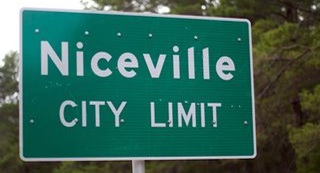When bosses are too invested in everyone getting along they also fail to encourage the people on their team to criticize one another for fear of sowing discord. They create the kind of work environment where being “nice” is prioritized at the expense of critiquing and therefore improving actual performance. ~Kim Scott

“I wasn’t direct with my guidance, I was subtle, I think he read between the lines.” “I don’t need to tell her specifically why I let her go; surely she can see why.” “I didn’t tell him why I was resigning; he’s got to know.” These are all actual statements I’ve heard, and it’s only a sample. We far too often prioritize “nice” over an opportunity to improve actual performance.
Kim Scott’s book Radical Candor became a bestseller very quickly. I was initially turned-off by the title because I made assumptions about what she meant by radical candor. Then someone enlightened me and now I too use the mantra of radical candor. In a nutshell, it means to simultaneously challenge directly and care personally.
To simultaneously challenge directly and care personally is not easy. Here’s why. Sheila Heen, co-author of Thanks for the Feedback, says that “feedback sits at the intersection of two human needs: 1) the need to learn and grow and 2) the desire to be accepted just as we are.” To challenge directly so someone can learn and grow while simultaneously letting them know they are accepted just as they are, is well, not easy.
Don’t Opt for Being “Nice”
It is so challenging, that far too often we opt for being “nice” and don’t say anything at all, or try to subtly hint at what we really want to say.
I’m in no way suggesting that we become mean. I’ve seen many scenarios where people weren’t challenged directly. I would argue that the person withholding the challenge did not really care personally about that individual. Because if they did really care, they would have challenged them. In other words, being “nice” is more about you than it is about the other person.
Scott puts it this way. “You need to rise above your empathy and realize that it’s your own feelings you are protecting, not theirs. To get past ruinous empathy, leaders must recognize that indulging near-term empathy ignores long term implications. You could be setting people up for bigger failure, and more hurt feelings, later. Convincing yourself that “it will all work out” absent your intervention is simply denial. Think about how they will feel when their shortfalls prove fatal and you have to fire them.”
Ruinous Empathy
I consider ruinous empathy to be passive-aggressive behavior, and that’s not at all helpful. Yes, leaders need to be empathetic, but this is ruinous empathy.
I recently had a senior executive tell me that they have never given anyone constructive feedback, they only give positive feedback. But, then shortfalls have proven fatal. And, they didn’t have to be fatal. I guess the older I get and the more examples I see; I truly believe a quote I heard a couple of years ago. “To hire someone and not tell them how they are doing, is cruel and unusual punishment.” It’s not nice! It’s ruinous.